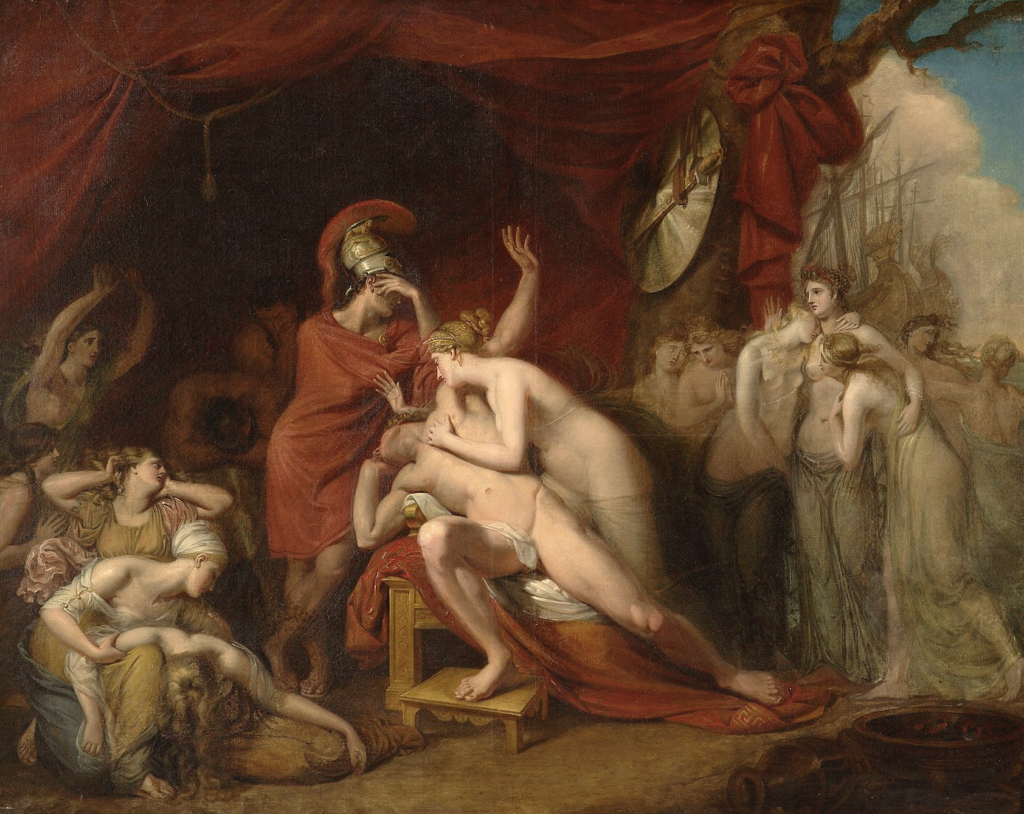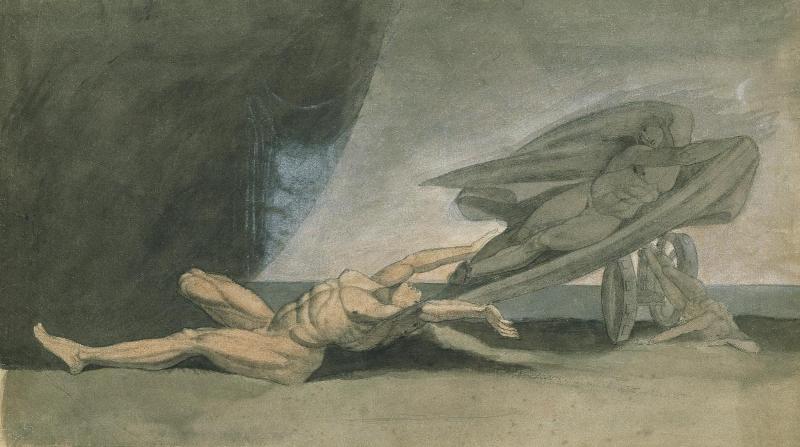The story of the Trojan War is one of the most well known cycles of Greek myths today, and Achilles is perhaps one of the most recognizable characters. While the Iliad is the most popular depiction of the hero, Achilles’ clash with the Trojan Prince Hector is just one of countless tales told about the son of Peleus. What is it about Achilles that so strongly captures the imagination of artists, and transcends barriers of time, culture, language, and genre? Why do we still care about his story 3,000 years later? What does it still have to say? When I begin to write a poem centered around a certain myth or character, these are the questions that I always start with.
A Brief Disclaimer
For the sake of literary analysis, I’m going to discuss Achilles here as if he is one single character. In reality, there are hundreds of Achilles (Achilleses?), as each depiction takes pieces of others, and adds their own additions; all influenced by the author’s own culture and biases. For a deeper dive into the varying sources on Achilles’ mythology, you can read “Tracing the Myth of Achilles,” the companion article to this poem.
Some Thoughts on “The Best of the Greeks”

Despite his infamous rage, I have always seen the character of Achilles as defined by two things: grief and futility. As is the case with many Greek heroes, the prophecy of his death looms over his life: the promise of eternal glory in exchange for an early grave on foreign shores. Unlike most Greek heroes, however, Achilles does not fight for glory. It is not even really rage that inspires his violence, but rather grief over the loss of his companion, Patroclus, whom he calls his “dearest love.”1 Louise Glück, in her own poem ruminating on the hero, “The Triumph of Achilles” wrote: “Achilles / grieved with his whole being / and the gods saw / he was a man already dead, a victim / of the part that loved, / the part that was mortal.”2
His bloodlust is fueled by a desperate, futile desire to inflict the same level of pain he experiences on others; but it is ever enough, he is a bottomless grave of a person. There are several instances in The Iliad where he wishes for his own death, wanting nothing more than to be reunited with Patroclus. “I will welcome my own death,” he tells Hector, the killer of his beloved companion, just before enacting his revenge.3 Yet even after killing Hector, even after dragging his corpse around the walls of Troy again and again—continuing the cycle of violence in the most literal possible way—still it is not enough. He weeps, he throws himself to the ground and tears at his hair, he slaughters hundreds of Trojans and chokes the river Scamander with bodies. None of it will ever be enough.

I think this is why it has always fascinated me that Paris is the one to finally put an end to Achilles. Though his death is not directly depicted in the Iliad, and the exact circumstances change, Paris firing the arrow that kills him is a near constant through the centuries. Hector even predicts it with his final words. I take this to mean ancient audiences were equally captivated by the concept. The best of the Greeks (άριστος´Αχαιων) isn’t taken down by the strongest or most cunning of the Trojans; it takes pretty Paris, Aphrodite’s favorite homewrecker. Maybe I’m just a romantic, but I choose to interpret this death as an act of mercy. Aphrodite’s acolyte finally reunites Achilles with his lost love.

Sing, O Goddess, of the Rage of Achilles,
prize flesh torn from your teeth mid-gulp.
Your hunger infamous, gorging
on blood and marrow until nothing remained
but the ashes of a city and an arrow through an ankle.
Were you shocked,
to have that hunger finally sated?
After a life of invulnerability,
άριστος´Αχαιων,
did the pain taste just the slightest bit sweet?
We always crave what we have been denied.
Had you imagined that moment?
Longed for it?
The moment when you would no longer be a Hero,
but just a lonely boy bleeding in the dust.
No great warrior to bring black death
over your eyes, no. Only the shepherd prince,
beloved by Love, and his cold bronze kiss.
by Ronan Thompson
- Hom. Id. Trans. Wilson, 19.412 ↩︎
- Glück, Louise. The Triumph of Achilles, 17-22 ↩︎
- Hom. Id. Trans. Emily Wilson, 22.490 ↩︎
Images
Featured Image: Achille Mourant photo by Jean-Pierre Dalbéra via Flickr. This work is in the public domain.
Achilles frantic for the loss of Patroclus, rejecting the consolation of Thetis painting by George Dawe, courtesy of Museum of New Zealand Te Papa Tongarewa. This work is in the public domain.
Achilles Grasping at Patroclus’ Shadow Homer, Ilias, XXIII, 99-101 pencil and chalk drawing by John Henry Fusili. This work is in the public domain.
Ronan Thompson is a junior at Ohio Wesleyan University majoring in Ancient Studies. He was introduced to classics in high school when he read Oedipus Rex and was struck by how a story from a culture and time so distant from his own still managed to evoke such strong emotions. The tragedies are his favorites and a big inspiration. He has been writing poetry almost his whole life. In his work, Ronan tries to explore the humanity of mythological characters, characters that tend to get over-simplified or flattened in modern retelling.